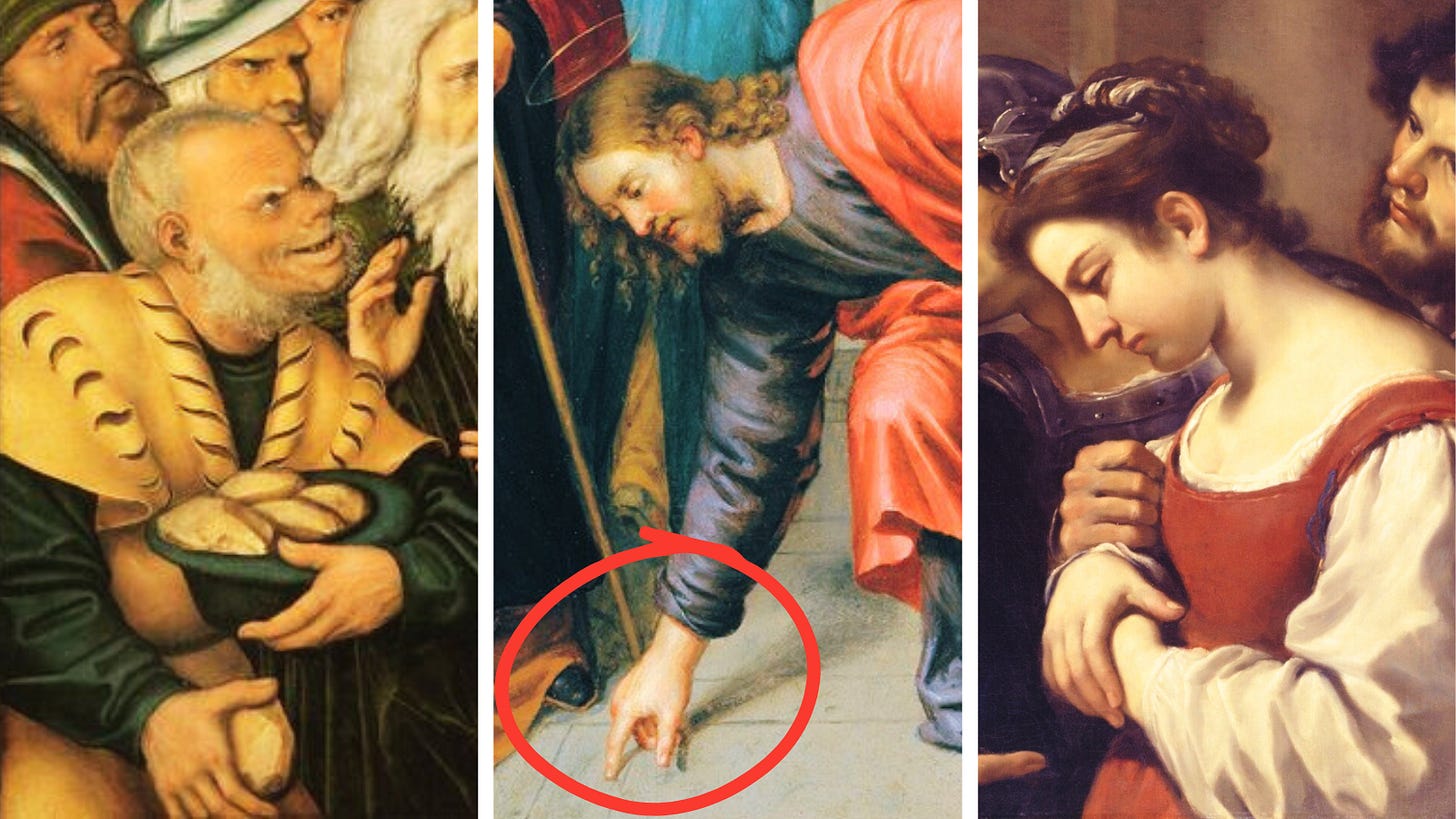Why does Scripture hide what Jesus wrote in the dirt?
This silence reveals the heart of the law
A woman stands accused. Stones are heavy in men’s hands.
The scribes demand a verdict: law or mercy, judgment or pardon.
But instead of answering, Jesus bends down and writes in the dirt.
And Scripture never tells us what He wrote.
That silence is not a gap — it is the point.
Here lies the hidden secret of how divine law works.
The Trap of Law and Mercy
The story in John 8 is charged with tension.
The scribes and Pharisees think they have devised the perfect trap: “Moses commanded us to stone such women. What do you say?” If Jesus answers, “Forgive her,” He appears to reject the law given by Moses. If He says, “Stone her,” He denies the law’s deeper purpose.
Jesus is not against the law, but neither is He for the law when it is applied without its spirit.
It seems there is no way out.
But instead of meeting their question with words, He bends down and begins to write. The crowd waits, confused. The silence stretches.
And in this pause, judgment itself is reframed.
The Divine Finger
This gesture is not incidental.
In the Bible, God’s finger appears at decisive moments. On Sinai, the “finger of God” inscribed the Ten Commandments on stone tablets (Exod. 31:18). Here, the same divine finger writes again - but this time not on stone.
Jesus writes on dust, the very substance from which Adam was formed (Gen. 2:7).
The difference matters.
Stone is external, cold, and breakable. Dust is malleable, the material of life, waiting for breath. The law once engraved on tablets is now inscribed on the very ground of humanity.
The finger of God stoops into creation itself.
Reminder: this is just a glimpse of the members-only deep dives.
Upgrade for a few dollars a month to support the mission and get premium content:
In-depth, full-length articles every weekend
Access to the full archive of Bible expositions
The Tablet of Dust
Dust in Scripture is more than meaningless debris.
It is the sign of human limitation, frailty, and potential. Adam was dust until God breathed life into him. To dust we return when life departs.
Dust is earth ready to receive heaven.
By writing in the dust, Christ fulfills Jeremiah’s prophecy: “I will write my law upon their hearts” (Jer. 31:33).
No longer external, the law becomes inward. No longer distant, it is written on the very substance of our being. The earth itself is the tablet.
Humanity is the scroll.
What Did He Write?
The silence of Scripture has always provoked speculation.
St. Jerome suggested Jesus was writing the names of the accusers in the earth, citing Jeremiah 17:13: “Those who depart from Me shall be written in the earth, because they have forsaken the Lord.”
Others imagined He wrote out the sins of each man standing there, exposing them one by one.
But John’s deliberate silence may be the point.
Because whatever He wrote, the act itself was enough to scatter the crowd. The lesson is this: divine law is not a code to be copied. It is a Person. Christ Himself is the Word.
Whatever He writes is sovereign.
Keep reading with a 7-day free trial
Subscribe to Reclaiming the Biblical Worldview to keep reading this post and get 7 days of free access to the full post archives.






